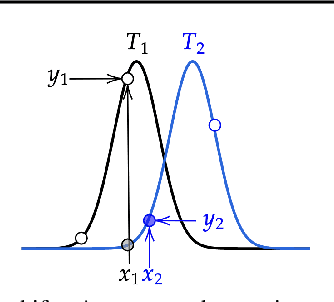Robustifying Sequential Neural Processes
Paper and Code
Jun 29, 2020



When tasks change over time, meta-transfer learning seeks to improve the efficiency of learning a new task via both meta-learning and transfer-learning. While the standard attention has been effective in a variety of settings, we question its effectiveness in improving meta-transfer learning since the tasks being learned are dynamic and the amount of context can be substantially smaller. In this paper, using a recently proposed meta-transfer learning model, Sequential Neural Processes (SNP), we first empirically show that it suffers from a similar underfitting problem observed in the functions inferred by Neural Processes. However, we further demonstrate that unlike the meta-learning setting, the standard attention mechanisms are not effective in meta-transfer setting. To resolve, we propose a new attention mechanism, Recurrent Memory Reconstruction (RMR), and demonstrate that providing an imaginary context that is recurrently updated and reconstructed with interaction is crucial in achieving effective attention for meta-transfer learning. Furthermore, incorporating RMR into SNP, we propose Attentive Sequential Neural Processes-RMR (ASNP-RMR) and demonstrate in various tasks that ASNP-RMR significantly outperforms the baselines.
 Add to Chrome
Add to Chrome Add to Firefox
Add to Firefox Add to Edge
Add to Edge